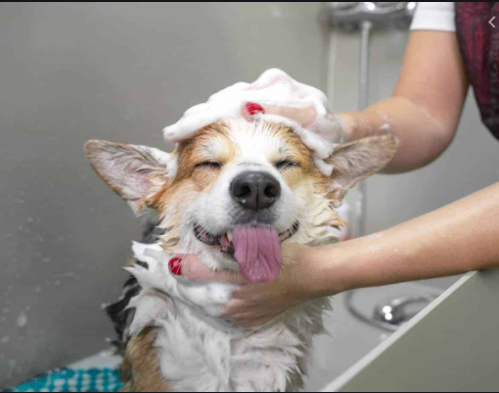5 Ways to Help Your Fur-Baby Combat Tummy Troubles
They say that a dog is man’s best friend, and there are a lot of people who will confirm that statement. Some dogs are even considered family. They’re included in family trips, wedding photos, and even wills. A lot of joy comes from being a pet owner and enjoying the company of a fun and furry creature.
However, it’s important to recognize that pet ownership is a big responsibility. As carefree as a dog may seem, caring for them can be a lot of hard work. One of your responsibilities is to help your dog to be happy and healthy. Despite your best efforts, dogs can still get sick, and some have chronic issues. Here are some ways you can improve tummy troubles for your furry pal:
1. Opt for Fresh Dog Food
Tummy troubles will be few and far between if you’re able to keep your dog on a proper diet. If you’re always opting for cheap bags of food or not checking nutritional values, that should probably change. You could be putting your pet at a greater risk of stomach pain and malnourishment.
In most cases, fresh dog food is going to be better than any alternative. The lack of preservatives and additives are usually easier on a dog’s stomach. Additionally, fresh food often contains more nutrients than their processed counterparts.
It’s important to note that a change in diet might be part of why your pet has stomach issues. When making a change to your pet’s diet, do so gradually. Make the transition over several days instead of immediately switching from one type of food to another.
2. Pet-Proof the House
Of course, what often gets a pet sick isn’t what the owner feeds it but rather what it eats itself. Many dogs have fallen ill by breaking into a cupboard or drawer they shouldn’t have and gobbling up something disagreeable. Just as you would child-proof a house for a new baby, you should pet-proof your home to prevent this from occurring.
Think of any substances you wouldn’t want your pet getting into and ingesting. This could be anything from cleaning solutions under the sink to your chocolate stash hidden in your bedroom drawer. Consider relocating these items to higher spaces or installing locks that protect them from furry intruders.
Another place your dog might try to get into is the garbage can. Try storing these in a more secure location or use lids that can’t be operated without opposable thumbs. Some trash cans even offer locking lids for this reason. It might seem extreme, but it’s better to put preventative measures in place than make an emergency trip to the vet.
3. Sprinkle in Some Probiotics
We, humans, will sometimes take vitamins or supplements to help us keep our health balanced. There’s no reason why your dog should be excluded from such a benefit, especially when they have less control over their diet.
Probiotics are supplements that contain helpful bacteria that are naturally found in the digestive tract. Increasing the number of these bacteria can help with digestion and digestive health. Things like stress and sickness can throw off balance, and probiotics can help restore the bacteria to the correct levels.
Before giving your dog a probiotic, consult with your veterinarian. They will be able to tell you which brands and dosages they recommend. This can vary based on your breed of dog, their size and weight, and the type of illness they may be experiencing.
4. Get Creative With Home Remedies
Some home remedies can help ease your dog’s upset stomach. These are similar to how your mother probably used a family secret to help you feel better when you were a kid. This section will cover a couple of pet remedies and some tips for sneaking them into your dog’s meals.
Dehydration is a concern with vomiting and diarrhea and can cause general uneasiness in the stomach. If your dog isn’t ready for drinking water, trick them into thinking ice chips are a yummy treat. This will help them rehydrate through eating rather than lapping up water. Smaller amounts of water can also be easier on the stomach.
If your dog drinks well but does not want to eat, you can add something to its water dish as a supplement. Boiling a ginger root is one of pet owners’ most popular home remedies. Some vets might even recommend diluting other beverages, such as Gatorade or Pedialyte, to get extra nutrients in their system while drinking.
5. Try Fasting
This is another approach that requires the guiding hand of a veterinarian. Certain dogs can handle periods of fasting better than others. In addition, your dog’s condition might prevent it from effectively fasting. Always consult with a professional before taking this route.
Similarly to intermittent fasting for humans, abstaining from food for a short period can help dogs improve their health. In the case of illness, less energy is being focused on the digestive system and can be rerouted toward fighting disease. If your dog ingested something bad, this also gives it a chance to get it out of their system entirely.
You want to keep your loved ones safe, including the furry ones. Taking a couple of extra measures won’t break the bank or take up all of your time, but they can keep your dog healthy and strong. Remember each dog is unique, so not all remedies will be helpful. But, hopefully, you’ll find something that does.








